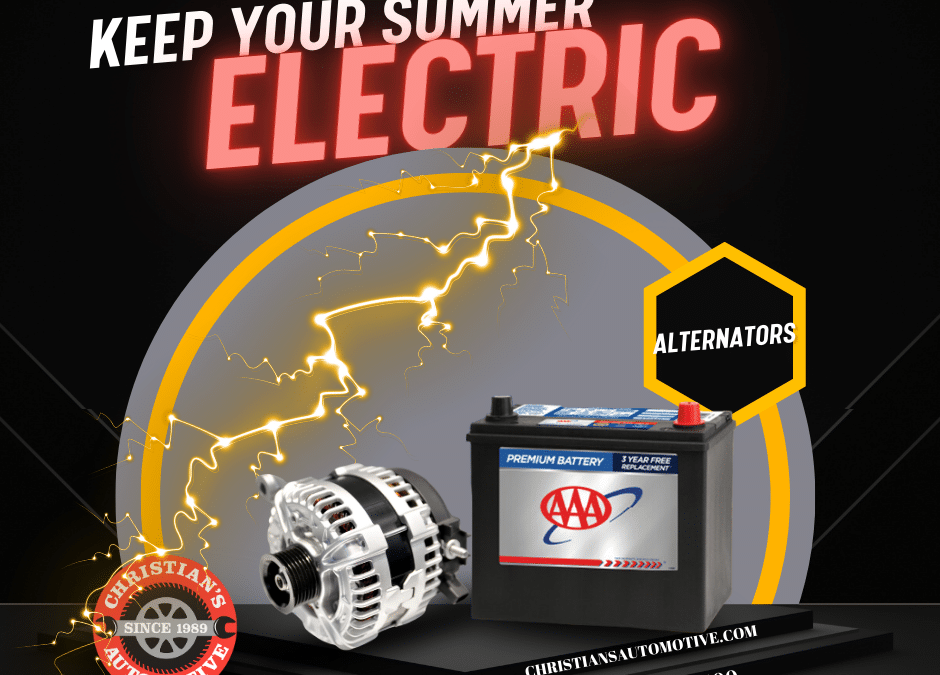
Brake Inspection – Stop with Assurance
June 10, 2024
The Intricacies of Hybrid and Electric Vehicle Systems
June 17, 2024Comparing Standard and Hybrid Vehicle Electrical Systems
Understanding Electrical Systems in Standard and Hybrid Vehicles
At Christian’s Automotive, we pride ourselves on providing excellent service and ensuring our customers are well-informed about their vehicles. Today, we delve into the complexities of electrical systems in standard and hybrid vehicles, shedding light on how they function and differ from one another.
The Basics of a Standard Vehicle’s Electrical System
Alternator: In a standard vehicle, the alternator plays a crucial role. It converts mechanical energy into electrical energy, powering the vehicle’s electrical systems and charging the battery while the engine runs. Without a functioning alternator, the battery would quickly drain and fail to start the car.
Battery: The battery provides the necessary power to start the engine and supports the electrical system when the engine is off. It stores energy generated by the alternator and ensures that components like the lights, radio, and other electronics function properly.
Spark Plug System: Spark plugs are essential for igniting the air-fuel mixture in the combustion chamber. They rely on electricity from the battery to create a spark, which initiates the combustion process inside the engine cylinders, allowing the vehicle to run smoothly.
Hybrid Vehicles: A Step Forward in Technology
Hybrid vehicles incorporate both traditional internal combustion engines and electric motors, resulting in enhanced efficiency and reduced emissions. Let’s explore the additional components and systems that set hybrids apart:
Electric Motor and Generator: Hybrid vehicles come equipped with an electric motor that assists the internal combustion engine or operates independently in certain driving conditions. This motor also acts as a generator, converting kinetic energy back into electrical energy during braking (regenerative braking) to recharge the battery.
High-Voltage Battery Pack: Unlike standard vehicles, hybrids use a high-voltage battery pack to store energy. This battery powers the electric motor and other electrical systems, significantly reducing the reliance on the internal combustion engine, especially in low-speed or stop-and-go driving conditions.
Power Control Unit: The power control unit manages the distribution of electrical power between the electric motor and the internal combustion engine. It ensures seamless transitions between the two power sources and optimizes energy efficiency.
Key Differences Between Standard and Hybrid Systems
While both standard and hybrid vehicles have alternators, batteries, and spark plug systems, hybrids feature additional components like electric motors, high-voltage battery packs, and power control units. These advanced systems work together to improve fuel efficiency, reduce emissions, and provide a smoother driving experience.




